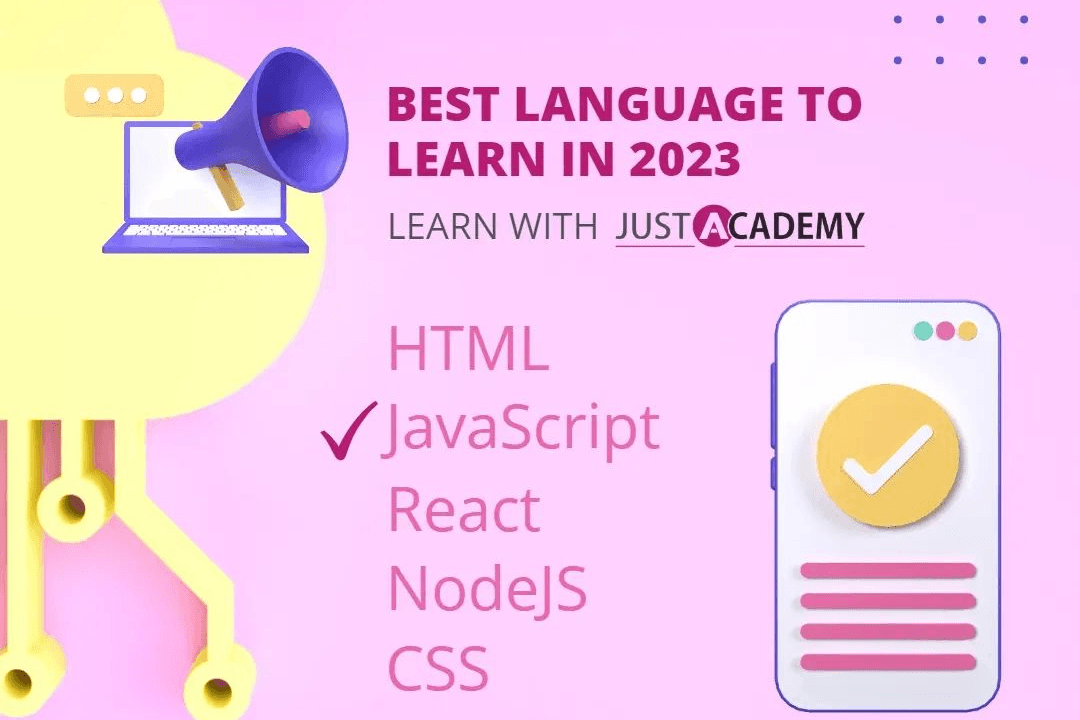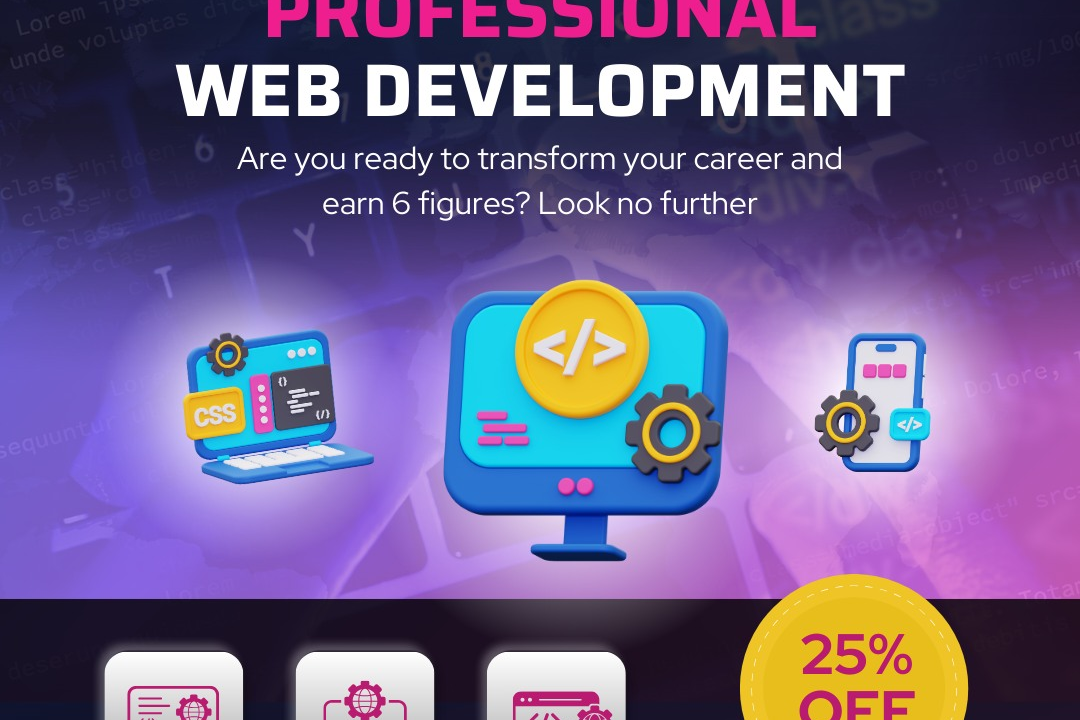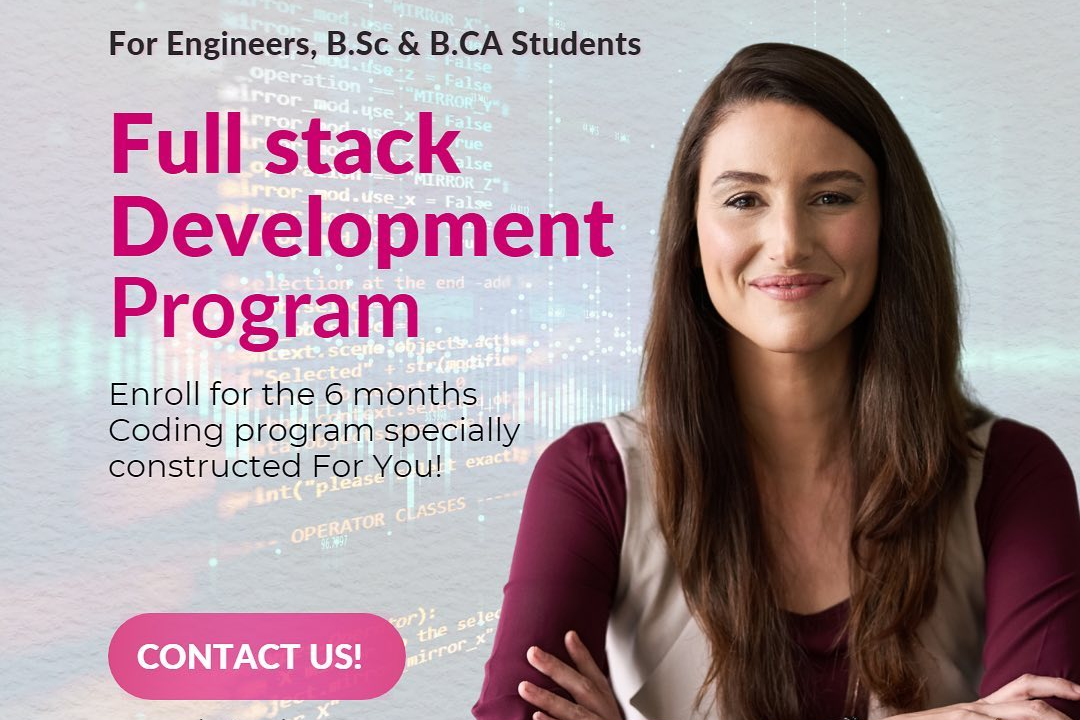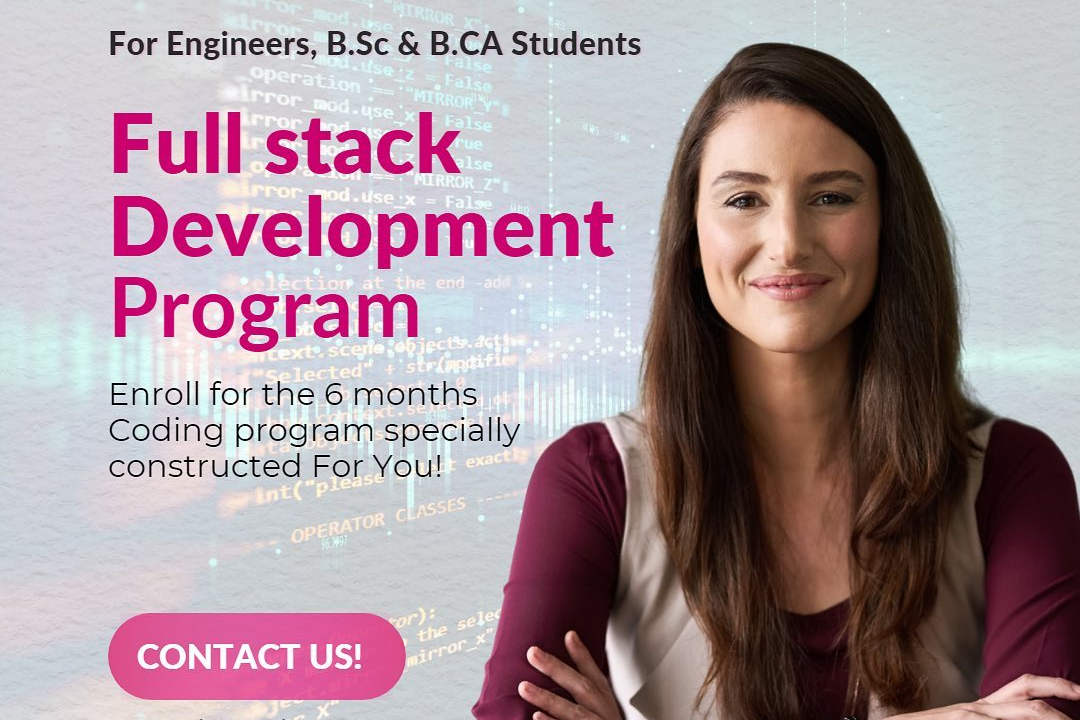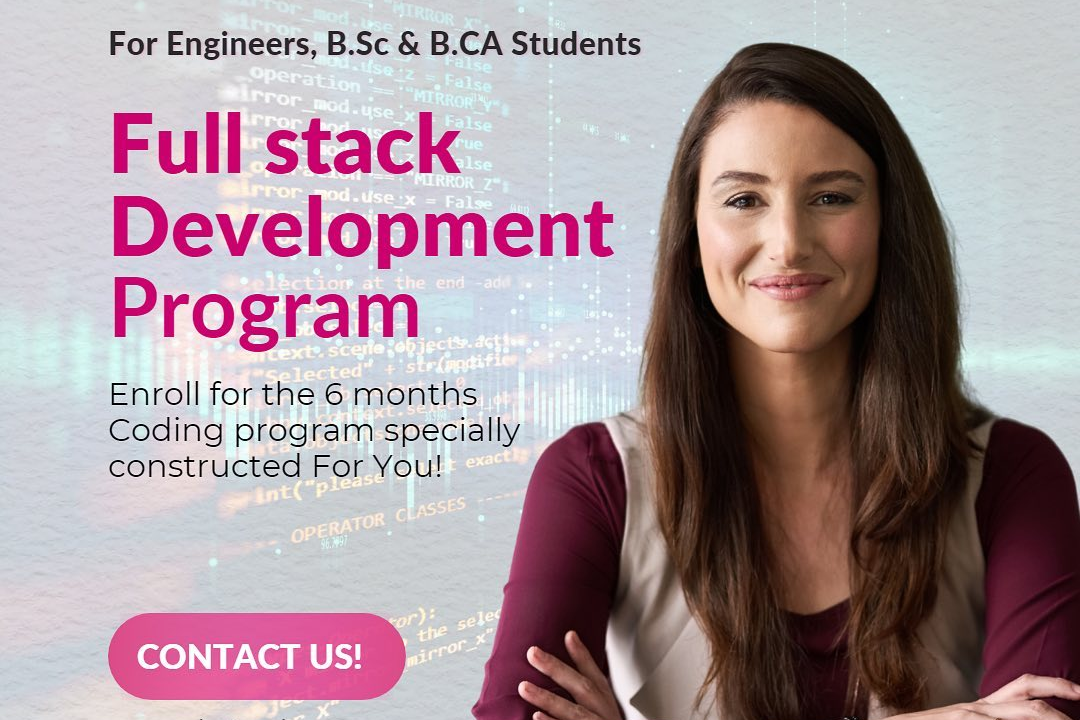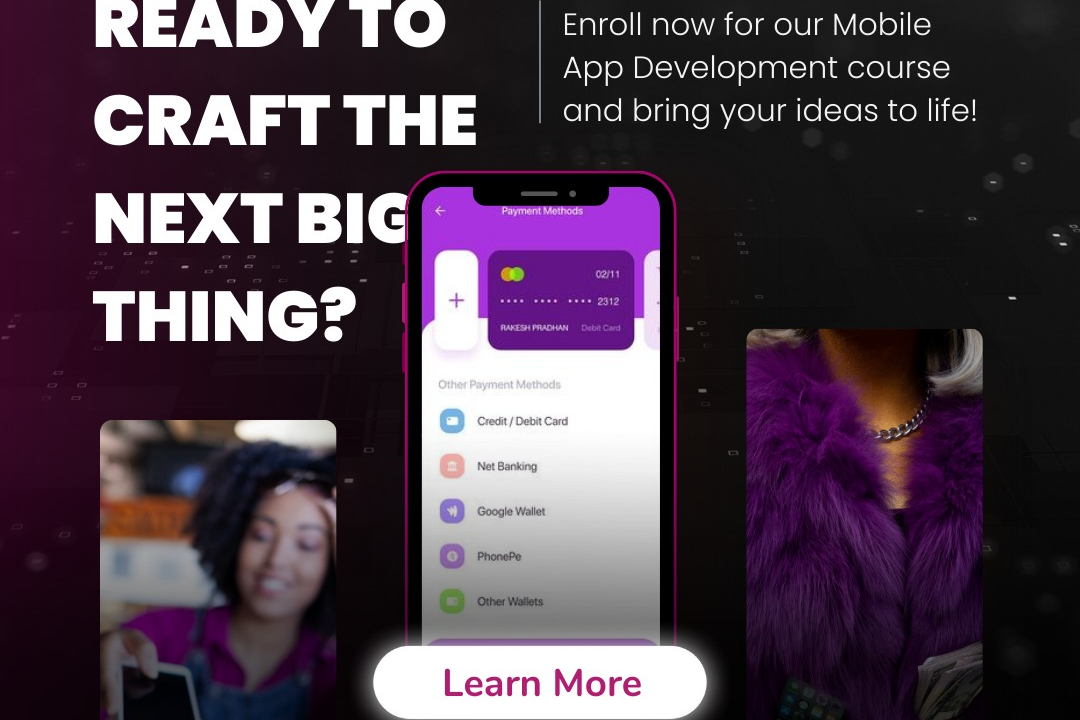Google App Engine Programming with PHP
Google App Engine PHP development is a platform that allows developers to build and deploy scalable
Google App Engine Programming with PHP
Google App Engine for PHP development offers a powerful and flexible platform that enables developers to build scalable, high-performance web applications without the hassle of managing server infrastructure. By leveraging Google’s cloud environment, PHP applications can effortlessly handle variable traffic levels, ensuring reliability and uptime. It simplifies deployment, accelerates development workflows, and seamlessly integrates with other Google Cloud services, making it an ideal solution for creating robust, cost-effective, and globally accessible PHP-based applications.
To Download Our Brochure: https://www.justacademy.co/download-brochure-for-free
Message us for more information: +91 9987184296
Google App Engine for PHP development offers a powerful and flexible platform that enables developers to build scalable, high performance web applications without the hassle of managing server infrastructure. By leveraging Google’s cloud environment, PHP applications can effortlessly handle variable traffic levels, ensuring reliability and uptime. It simplifies deployment, accelerates development workflows, and seamlessly integrates with other Google Cloud services, making it an ideal solution for creating robust, cost effective, and globally accessible PHP based applications.
Course Overview
The ‘Google App Engine Programming with PHP’ course teaches you to develop, deploy, and manage scalable PHP applications on Google App Engine using real-time projects. You'll learn cloud architecture, deployment strategies, and best practices, enabling you to build high-performance web apps efficiently.
Course Description
The “Google App Engine Programming with PHP” course covers developing, deploying, and managing scalable PHP applications on Google App Engine through hands-on projects, focusing on cloud architecture, deployment, and best practices.
Key Features
1 - Comprehensive Tool Coverage: Provides hands-on training with a range of industry-standard testing tools, including Selenium, JIRA, LoadRunner, and TestRail.
2) Practical Exercises: Features real-world exercises and case studies to apply tools in various testing scenarios.
3) Interactive Learning: Includes interactive sessions with industry experts for personalized feedback and guidance.
4) Detailed Tutorials: Offers extensive tutorials and documentation on tool functionalities and best practices.
5) Advanced Techniques: Covers both fundamental and advanced techniques for using testing tools effectively.
6) Data Visualization: Integrates tools for visualizing test metrics and results, enhancing data interpretation and decision-making.
7) Tool Integration: Teaches how to integrate testing tools into the software development lifecycle for streamlined workflows.
8) Project-Based Learning: Focuses on project-based learning to build practical skills and create a portfolio of completed tasks.
9) Career Support: Provides resources and support for applying learned skills to real-world job scenarios, including resume building and interview preparation.
10) Up-to-Date Content: Ensures that course materials reflect the latest industry standards and tool updates.
Benefits of taking our course
Functional Tools
1 - Google Cloud SDK (gcloud) Command line Interface: The Google Cloud SDK is essential for managing and deploying applications on Google Cloud. It provides a set of tools that allow developers to interact with Google Cloud services directly from their terminal, facilitating tasks like deploying PHP applications, managing resources, and monitoring performance. During the course, students learn how to install, configure, and utilize the SDK to streamline their deployment workflows, troubleshoot issues, and automate repetitive tasks, thereby improving efficiency and accuracy.
2) Google Cloud Console: The Cloud Console is a web based interface that offers a user friendly environment to manage Google Cloud resources visually. Students are trained to navigate the console for setting up projects, configuring App Engine environments, monitoring application logs, and managing security settings. This tool helps learners gain hands on experience with cloud resource management and provides insights into application performance metrics in real time, promoting effective oversight of their deployments.
3) Integrated Development Environment (IDE) Plugins and Extensions: To enhance the PHP development experience, the course introduces various IDE plugins, such as those available for Visual Studio Code, PHPStorm, or Eclipse. These extensions facilitate seamless integration with Google Cloud services, enabling students to write, test, and deploy code directly from their favorite IDEs. Learning to use these tools accelerates development cycles, reduces errors, and fosters a more productive workflow, especially when working on complex, real time web applications.
4) PhpMyAdmin and Cloud SQL Tools: Managing databases efficiently is critical in cloud applications. The course includes training on using PhpMyAdmin and Cloud SQL interfaces to create, modify, and optimize MySQL databases hosted on Google Cloud. Students learn how to establish secure connections, perform backups, and execute queries, ensuring their PHP applications have reliable and scalable database support. This exposure prepares learners to handle real world data management challenges in cloud environments.
5) App Engine SDKs and Libraries for PHP: The course covers the use of Google specific SDKs and libraries designed for PHP applications deployed on App Engine. These tools simplify interacting with Google Cloud services such as storage, authentication, and pub/sub messaging. Students understand how to incorporate these SDKs into their projects to leverage cloud functionalities effectively, ensuring their applications are scalable, secure, and efficient.
6) Version Control Systems (Git): Version control is paramount for collaborative development and maintaining code integrity. The training includes comprehensive guidance on using Git, GitHub, or Bitbucket for source code management. Students learn how to track changes, branch code, resolve conflicts, and collaborate with teams smoothly. Mastering these tools ensures a structured development process and prepares students for professional workflows in cloud programming projects.
7) Cloud Storage and File Management Tools: Managing static files and user data efficiently is vital for PHP applications. The course evaluates tools like Google Cloud Storage, including its CLI commands and API integrations, for uploading, retrieving, and organizing files. Students learn best practices for handling media uploads, backups, and content delivery, ensuring their applications can serve content reliably and with high scalability.
8) Monitoring and Logging Tools: Effective application management requires real time monitoring and debugging capabilities. The course introduces tools like Google Stackdriver (now part of Operations suite) for logging, alerts, and performance metrics. Students gain hands on experience setting up dashboards, interpreting logs, and configuring alerts to proactively manage their applications, minimizing downtime and improving user experience.
9) Google Cloud Deployment Manager: This Infrastructure as Code (IaC) tool allows students to automate the provisioning, configuration, and management of cloud resources. Through the course, learners develop skills to write deployment templates, version their infrastructure code, and deploy multi resource environments seamlessly, ensuring consistent and repeatable setups for their PHP applications on Google Cloud.
10) Cloud Build and CI/CD Pipelines: The course introduces Google Cloud Build to design continuous integration and continuous deployment (CI/CD) workflows. Students learn how to automate testing, building, and deploying PHP applications, reducing manual effort and accelerating release cycles. Integrating these pipelines ensures that updates are quick, reliable, and consistent across environments.
11 - Security and Identity Management Tools: Ensuring application security is a core focus. The course covers Google Cloud Identity & Access Management (IAM), SSL/TLS certificates, and Firewall rules. Students understand how to configure secure access, manage user roles, and implement encryption practices, safeguarding their applications and data against threats.
12) Cloud Functions and Serverless Computing: To extend PHP applications with event driven architecture, the course explores Cloud Functions and serverless integrations. Students learn how to trigger functions based on database changes, HTTP requests, or storage events, enabling scalable and cost effective feature implementations.
13) Cloud APIs and Service Integrations: The course emphasizes integrating various Google Cloud APIs such as Maps, Translation, and Vision within PHP applications. Students develop skills to authenticate API calls, handle responses, and incorporate third party services, enriching their web applications’ functionalities.
14) Real time Data Processing Tools: For applications requiring live data updates, the course introduces Pub/Sub messaging, Dataflow, and Firestore. Learners are trained to implement real time notifications, chat features, or live dashboards, enhancing interactivity and user engagement.
15) Cost Management and Billing Tools: Managing cloud costs is vital for sustainable projects. The course educates students on Google Cloud Billing dashboards, Cost Explorer, and budgeting tools to monitor usage, optimize resource allocation, and control expenses, promoting financially efficient deployments.
16) Backup and Disaster Recovery Solutions: The curriculum includes strategies for data backup, snapshots, and disaster recovery planning. Students learn how to implement reliable recovery procedures, ensuring data integrity and minimal downtime in case of failures or outages.
17) Multi region and Load Balancing Strategies: To improve application reliability and performance, students explore multi region deployments and load balancing configurations, distributing traffic effectively and reducing latency, especially crucial for global user bases.
18) Mobile and Frontend Integration Tools: The course demonstrates how to connect PHP based backend services with mobile apps or front end frameworks. Techniques like RESTful API design and OAuth authentication are covered, enabling smooth integration across platforms.
19) Community Resources and Developer Support: Learners are introduced to Google Cloud community forums, support channels, and documentation repositories. This knowledge empowers students to troubleshoot, stay updated with latest features, and continuously improve their cloud skills post certification.
20) Real time Project Experience: Throughout the course, students participate in capstone projects simulating real world scenarios, which involve deploying complete PHP applications leveraging the above tools and services. This practical approach ensures they gain confidence and competence in cloud based development and deployment.
Browse our course links : https://www.justacademy.co/all-courses
To Join our FREE DEMO Session:
This information is sourced from JustAcademy
Contact Info:
Roshan Chaturvedi
Message us on Whatsapp: +91 9987184296
Email id: info@justacademy.co
SELENIUM TRAINING SITE www.traininginvelachery.in

